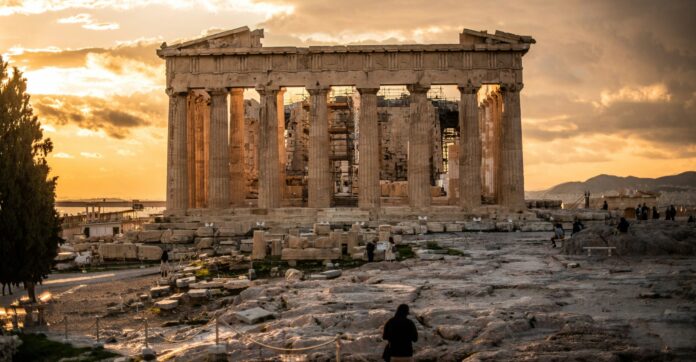The Parthenon, still standing proudly atop the Athenian Acropolis today, is more than just a stunning architectural marvel. It’s a powerful symbol, a testament to the ideals that shaped Athenian society in the 5th century BC. Here’s why this ancient temple holds such significance.
Dedicated to Athena
The Parthenon was dedicated to Athena, the Greek goddess of wisdom, warfare, and handicraft. However, in Athens, she was also considered the patron goddess of democracy, symbolizing justice, reason, and civic duty. By dedicating this magnificent temple to Athena, the Athenians further solidified the connection between the goddess and their democratic ideals.
Civic Equality
Unlike many ancient structures that were adorned with depictions of rulers or deities, the Parthenon’s frieze depicted scenes of everyday Athenian citizens, including soldiers, athletes, and women. This deliberate choice reflected the Athenian belief in the importance of every citizen in the democratic process.
Funding Through Democracy
The construction of the Parthenon was financed through the Delian League, a maritime alliance of Greek city-states led by Athens. While the League’s purpose was initially to defend against Persian invasions, Athens used a portion of its treasury, funded by member contributions, to build the magnificent temple. This use of public funds further highlights the democratic principles of Athens.

